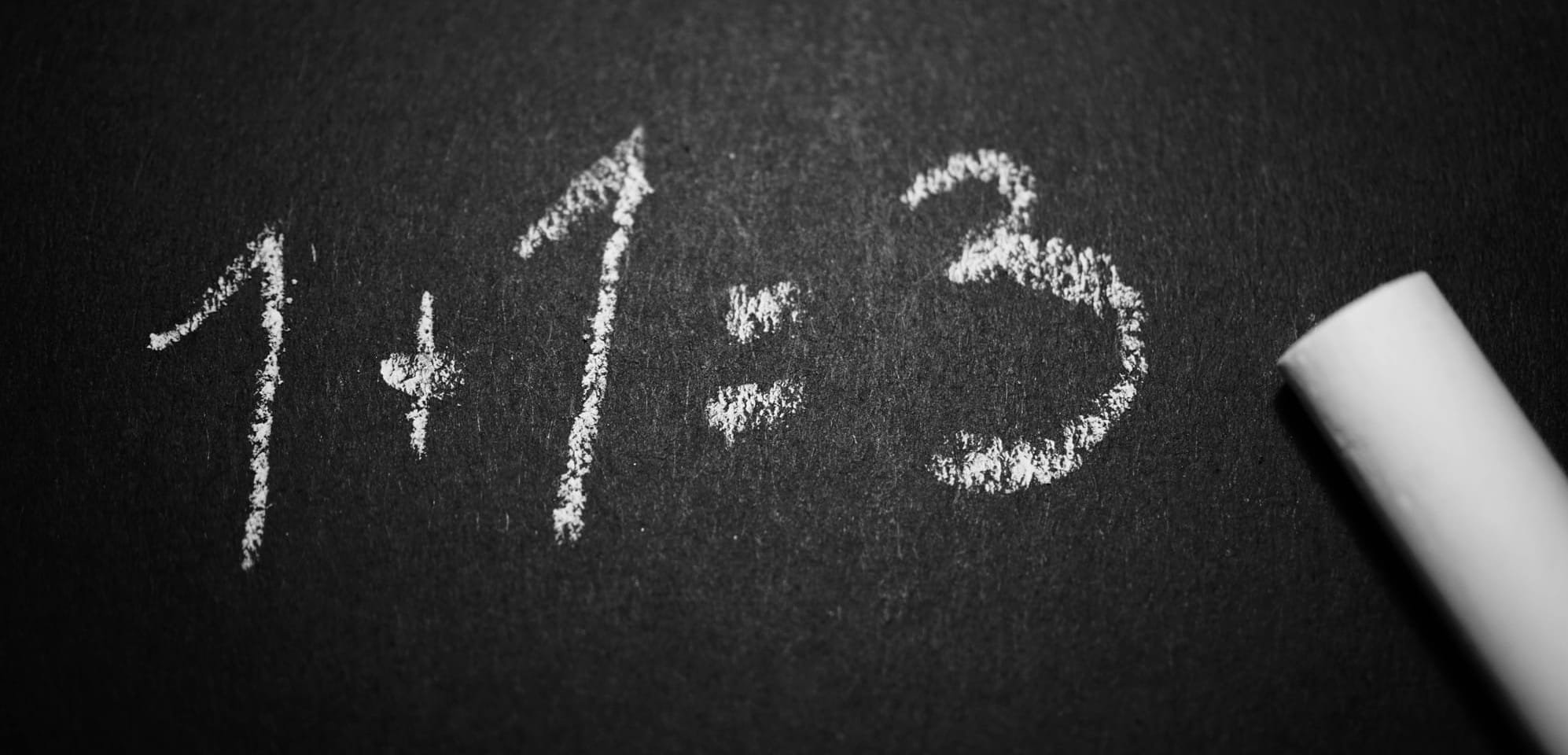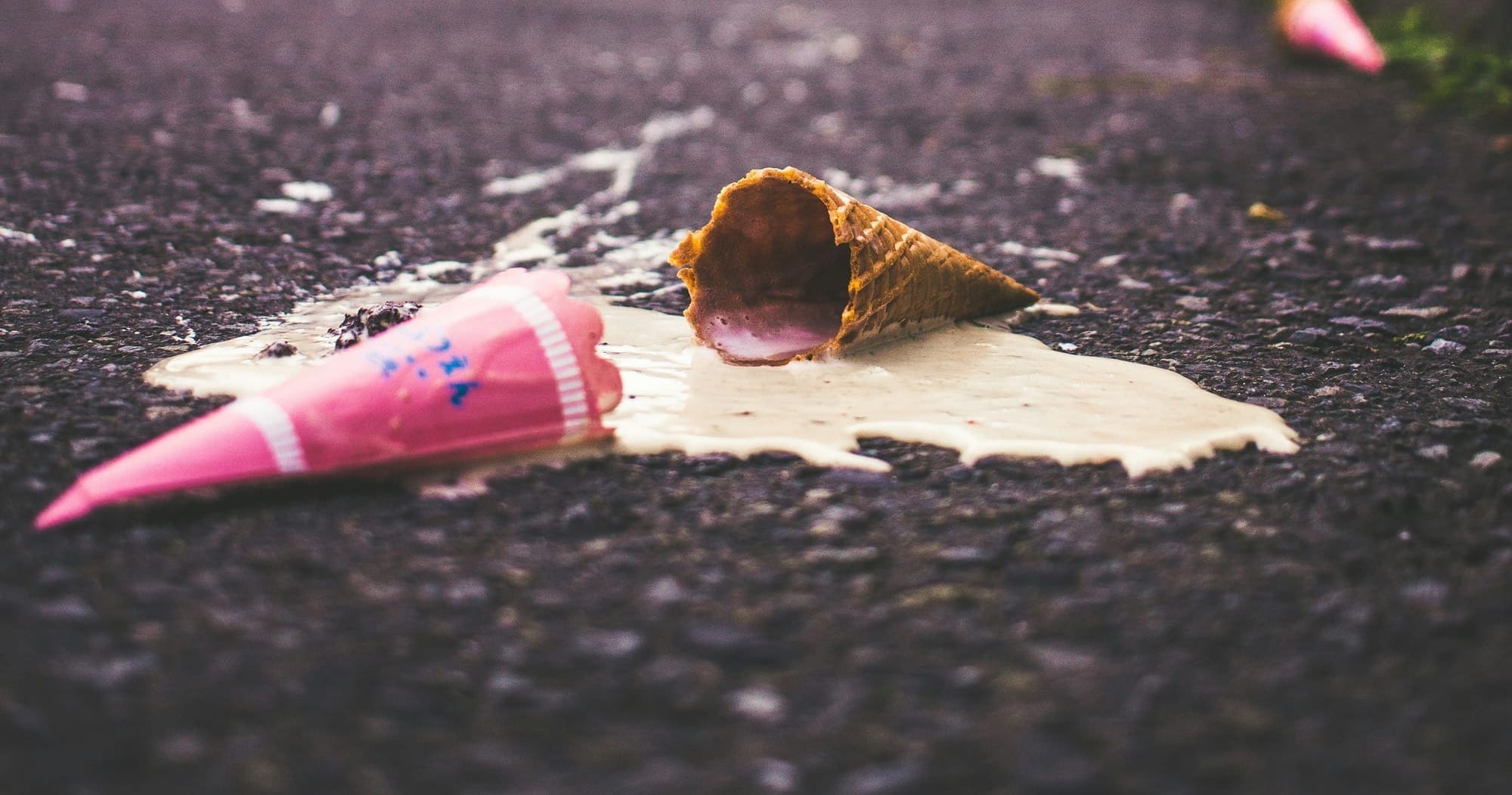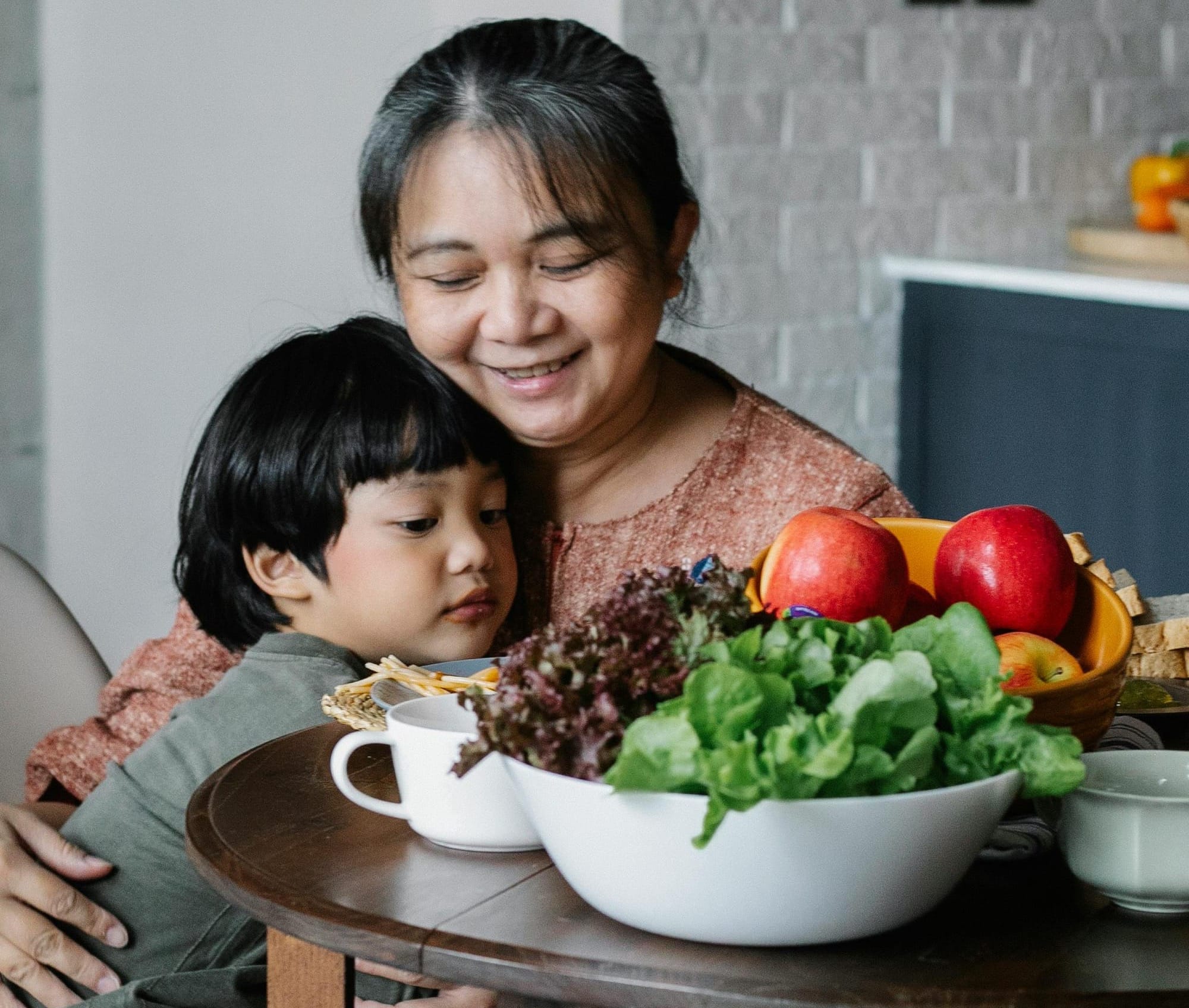Thoughts: How should a grandparent handle mistakes?

On a recent visit, a grandson broke a ceramic bowl I loved. Like many kids his age, he doesn’t always insert a “think about it” in between seeing and doing. So when he (1) climbed on a chair to (2) open the glass cabinet of our secretary desk to (3) get the bobblehead inside (that’s three “ask first” steps), he didn’t think about how the swinging door of the cabinet would impact the bowl sitting on the flat surface beneath it. Result: the swinging door pushed the bowl to the floor, and it shattered.
He was immediately remorseful, even crying a little. I was disappointed, as the bowl was locally hand-made about 30 years ago. So while I immediately agreed with him that the event was an accident, and went to work cleaning up the fragments, I was not immediately forgiving. My thought was that the mistake was preventable either by asking first or by thinking first. So, while I didn’t get mad—at least not in an angry voice sort of way—I did let him cry a little without comforting him, thinking that a lesson about taking care might sink in.
But I wondered later whether I handled this well. After a mistake, when is the right time for blame? The right time for forgiveness?
What about adult mistakes?
One early December, I missed bringing my Mom to her quarterly appointment for injections to slow her macular degeneration. I rescheduled for January 2. The delay had terrible consequences: Between the missed appointment and the new appointment, my Mom’s vision worsened to the point that she couldn’t read. The change was devastating for her, as reading was her chief source of activity and pleasure.
I was immediately remorseful, blaming myself. I ran through potentially extenuating circumstances:
Of course I was overwhelmed: We had helped Mom move to a new facility just two weeks prior to missing the appointment, I had ongoing grandchild care, and the holidays intervened. Plus, I felt I couldn’t ask for more help—the grandkids’ parents had their own versions of overwhelmed with work, school, and illness. I had tried to get more information about the injections from Mom’s doctor but had been rebuffed: earlier in the year, I had asked the doctor whether the ongoing appointments were necessary, given how hard they are on Mom. I got a “yes,” but despite repeated questioning, no specifics on effectiveness or why/whether specific timing was necessary.
And I jumped into doing what I could to help Mom adjust to the new circumstance. But I was meanwhile suspecting that my explanations of the mistake were simply excuses.
After a mistake, when is the right time for self-blame? The right time for self-forgiveness?

When should we "know better"?
You’ve probably already noticed that these mistakes are very different. My grandson is a kid, and I am an adult. The consequences of my grandson’s mistake were trivial, the consequences of my mistake were life-changing. My first set of questions asks when one person should forgive another; the second asks when one should forgive oneself. Still, I found some helpful direction from comparing the two events.
One parallel is that these events truly were mistakes: Neither my grandson nor I intended any harm. A second parallel is that both my grandson and I immediately felt bad for making a mistake—because we each hurt someone else and because we each realized that the mistake could have been avoided. Third, both events raised issues of blame and forgiveness: but why, given that they were mistakes? I’ll say a little more about each of these parallels, and then pull the thoughts together to start to answer my own questions.
So first, the issue of intent. Because neither of us intended any harm, one approach is to skip the hand-wringing and just forget about it. After all, everyone has made mistakes and will make mistakes; there’s no way around our being imperfect. In fact, I think that forgetting about it is exactly the right strategy a lot of the time, particularly when no one is hurt or the hurt is trivial. Yet not intending doesn’t always let a person off the hook. For one thing, mistakes often do cause harm, sometimes serious harm. And while they may not be directlyintended, mistakes often stem from what philosophers call “culpable ignorance,” or from what the legal system terms civil negligence, criminal negligence, and recklessness. These terms boil down to a common reprimand after a harm-causing mistake: “You should know better.” My grandson should know better than to handle our things without asking; I should know better than to delay my Mom’s appointment.

Why does a mistake feel bad?
Second, why did we each feel bad? In my experience, the “feel bad” is partly shame or embarrassment. I feel ashamed when I don’t live up to my own expectations for myself; I think of myself as competent and effective, and blowing it exposes my fragility or flaws. If I’m embarrassed, it’s because I’m responding to or anticipating the negative judgments or accusations others will make of me after my mistake. But, again in my experience, one also feels bad simply because someone else is hurting. This moral urge or empathy recognizes that the mistake hurt someone else. (Some mistakes self-harm, but I’ll skip that topic for now.) Then there’s the chagrin-inducing practical effect of the error, whether it’s having to clean up a broken bowl or figure out resources to help accommodate a loss of vision. For all except the last of these, I’m guessing my grandson felt something similar.
Do we need blame? Forgiveness?
Finally, why do mistakes bring up notions of blame and forgiveness? It certainly isn’t necessary to add either to the event. Why bring in the emotional baggage—the remorse, guilt, anger, contempt, condemnation, relief—or worry about when blame or forgiveness is due? Why not just get on with dealing with the practical aftermath? For example, the gentle parenting approach discourages blame in favor of setting boundaries made appealing to the child through empathy, respect, and understanding. In the business world, “blame culture” and “no-blame culture” (or accountability culture) are buzzwords describing toxic and productive workplaces, respectively.
Yet practices of blame and forgiveness have stuck around for millennia. Here are some thoughts on why—hardly definitive, but hopefully helpful as a starting point. First, blame: I’m drawn to the Pragmatist idea that blaming has a function or purpose. For example, blame might be a way of pointing out to someone that they have done something hurtful, so blaming each other appropriately might help us avoid harming each other in the future. A positive spin on this is that blaming is a form of teaching. So if I am blaming myself, I want to teach myself something. But if I stop at self-blame, the result is…what? Self-loathing? Depression? If I go past the self-blame to devise ways to correct or prevent the blameworthy action in the future, I have developed my character a little—that is, developed my propensity to act rightly the next time.
Perhaps, then, forgiveness is the follow-up to the lesson taught in blaming. “PS. If you do recognize the hurt you caused, fix the problem, apologize, avoid the action in the future, we can just move on.” (Not necessarily all of the list.) As with blaming, forgiveness in this way of thinking would ease our social relationships, given that we all have made mistakes and will again.

Lessons for Grandma
So what does that mean to me as a grandparent?
• First, I want to think of my reactions to the grandchildren’s mistakes primarily as an opportunity for teaching. Blaming is not an end in itself, nor is feeling remorse. What’s important is the change in behavior and character.
• Second, the emotional content of blaming should be minimal, especially with a grandchild who is sensitive. Gentle responses are likely to work better for teaching than explosive ones.
• Third, how to blame or to teach about mistakes is going to vary a lot depending on the age of the child, their emotional and cognitive maturity, their background in receiving such feedback or instructions—a lot of sensitivity to this is needed on the part of the grandparent. (There’s a lot to say about how/when to deliver a teaching message in a future blog.)
And what does this mean for my self-blame? I think the lessons are quite similar. Yes, self-blame is appropriate and important. But again the point is to teach—to change my own behavior or character according to the lessons learned, to feel the emotion of self-blame but not get bogged down in it, to expect a lot from myself as a cognitively and emotionally aware adult—but not too much; we all need to grow. And be kind to myself.
This approach/interpretation of blame won’t satisfy some people. It trips a bit lightly over the emotional aspects of blame—particularly the feeling of remorse. To many people—including my grandson and me, apparently—it comes naturally to feel bad when we have done something wrong, and feeling bad might incentivize us to change our behavior. My thought, though, is that enough is enough when it comes to insisting on or feeling remorse. Drilling down on the pain might backfire, leading the blamed person to tune out, respond in anger, or deflect back to the blamer, rather than self-correcting. There’s also no point in blaming people who don’t have the cognitive and emotional development to understand and act on the blame—they are not ready to be taught. For example, blaming a child under about age 4 makes no sense: They don’t have the ability to distinguish “on purpose” from “by accident,” or the ability to think ahead to change their own behavior.
So, in retrospect, I think I should have comforted my grandson sooner. And been a little less hard on myself. (Thank you to sister Sarah for helping me see the latter.)